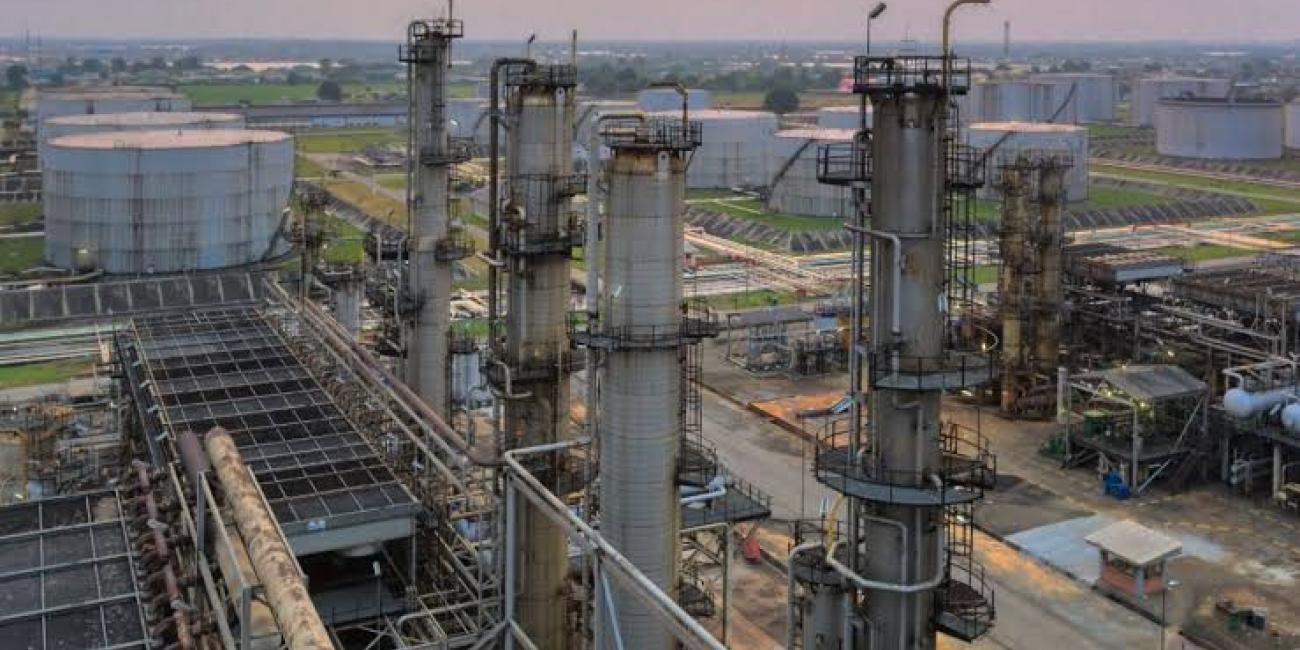Port Harcourt Refinery resumes operations, several months after shutdown for rehabilitation

*The PwC’s report saying while refineries won’t crash fuel
*Plus talks of subsidy as necessity
By OUR REPORTER
The Port Harcourt Refining Company (PHRC), on Wednesday, reportedly resumed operations several months after it was shut down for rehabilitation by the Nigerian National Petroleum Corporation Limited (NNPCL) and in line with the Federal Government’s promise since the President Muhammadu Buhari’s era to ensure the production of refined products at the facility in December 2023.
A media report on Thursday quoted Amaka Okafor, Special Assistant to the Minister of State for Petroleum Resources, Heineken Lokpobiri, who confirmed the resumption of operation at the refinery as saying, “Yes, the refinery is set, we will visit the refinery site today to kickstart its operation.”
The $1.5 billion rehabilitation project of the refinery was launched by former President Muhammadu Buhari administration in 2019, to restore the refinery to its nameplate capacity of 210,000 barrels per day (bpd).
Lokpobiri and the Group Chief Executive Officer of the NNPC Limited, Mele Kyari, in August, assured Nigerians that the refinery would be operational by December 2023.
Kyari, also during the budget defence session on December 9, told Nigerian lawmakers that by the end of December 2023, the Port Harcourt Refinery would commence operations.
He further said that in early 2024, the Warri Refinery would begin operation and that by the end of 2024, the Kaduna Refinery was expected to also commence operation.
Kyari had been quoted as saying, “I can confirm to you that by the end of December this year, we will start the Port Harcourt refinery; early in the first quarter of 2024, we will start the Warri refinery, and by the end of 2024, Kaduna refinery will come into operation.”
Also speaking on the same occasion, during an inspection tour of the rehabilitation work at the Port Harcourt Refinery plant, based on assurances of the NNPCL boss, Minister of State for Petroleum Resources, Heineken Lokpobiri, had said the refinery would recommence operations in December.
“Our objective in coming here today is to ensure that in the next few years, Nigeria stops fuel importation. From what we have seen here today, Port Harcourt Refinery will come on board by the end of the year,” he said in August.
The recommencement of operations at the Port Harcourt Refinery was coming over two years after the Buhari-led Federal Government approved funding of $1.5 billion (1.2 billion euros) to repair one of its biggest oil refineries.
The government chose an Italian firm Maire Tecnimont to carry out the repair work at the Port Harcourt facility which has a capacity of some 210,000 bpd.
“We are happy to announce that the rehabilitation of productivity refinery will commence in three phases,” the then-Minister of Petroleum (State) Timipre Sylva told reporters.
“The first phase is to be completed in 18 months, which will take the refinery to a production of 90 percent of its nameplate capacity,” said Sylva, adding that the second phase would be completed in 24 months and the third in 44 months.
Despite being Africa’s number one oil producer, Nigeria has relied on imports of petroleum products because of a lack of domestic refining capacity. Fuel shortages are commonplace.
But as part of moves to overhaul the Nigerian National Petroleum Company Limited (NNPCL), the government under Tinubu has been working to improve capacity at the country’s under-performing state-owned refineries.
It is hoped that the resumption of refinery activity in the facility and the commencement of a similar exercise at the Dangote Refinery will improve the supply of fuel in Africa’s largest oil producing country and allow the nation to make savings on refined fuel and other petroleum products, it has been said.
With the removal of subsidy on fuel, the move is also expected to impact on the cost of the product.
The PwC report
Another stage of fear among Nigerians will be in the area spoken to by Price Waterhouse Coopers (PwC) in its report published in June 2023, which argued that “in-country crude oil refining may not significantly reduce petrol prices because the costs of haulage, insurance and associated cost of importation do not constitute the most significant component of cost across the value chain.”
In a report released by the global organisation which offers clients various professional business services, including accounting, auditing, human resources consulting, and strategy management, it picked holes in the general belief that local refining of crude oil could potentially eliminate the need for petrol subsidies altogether or make the market price affordable.
It argued that unless the international price of crude oil falls below a certain level, while local refining will provide a price cushion, it is not a silver bullet that would magically solve the subsidy problem.
While noting that currently, Nigeria imports its refined petroleum products due to limited or no domestic refining, it explained that this makes the country’s fuel price not only dependent on global oil prices and exchange rates, but also importation and handling charges.
“However, other than the costs of haulage, insurance and associated cost of importation, (these) materials do not constitute the most significant components of cost across the value chain.
“This implies that the pump price without subsidy would still be higher than the regulated price unless the international price of crude oil falls below a certain level.
“While local refining will provide a price cushion, it is not a silver bullet that would magically solve the subsidy problem,” the organisation stated.
PwC added that fuel subsidy in Nigeria had been fraught with issues of corruption and inefficiency while palliatives had been suggested by some as a possible way to alleviate the suffering of those that will be most affected by subsidy removal.
But it said that while palliatives may help to mitigate the immediate impact of rising prices such as cash transfers, provision of buses to the Labour Union or other forms of assistance, the effectiveness of palliatives depends on several factors.
For one, PwC argued that it is difficult to identify and sufficiently cover the vulnerable population that will be most impacted, especially given the lack of reliable demographic data.
According to the firm, in reality, palliatives can be expensive yet ineffective in addition to their being prone to corruption.
However, it suggested that a multifaceted approach that involves evidence-based identification of the most vulnerable population, and a robust palliative administration with in-built controls would provide a more sustainable and long-term solution.
Subsidy essential
The DEFENDER notes that subsidy payable by government is known not only to Nigeria but to nations all over the world as a means of making costly yet essential commodity (beyond petroleum products to food and healthcare delivery) available and accessible to the masses of the people at affordable prices, hence the need for the current government of Nigeria to reconsider its policy removal policy.
Subsidy, this online newspaper finding revealed, has been further found out to be one major area that government largesse is easily felt and benefited by the masses of Nigerian people, if proper and adequate checks and control measures are put in place.









